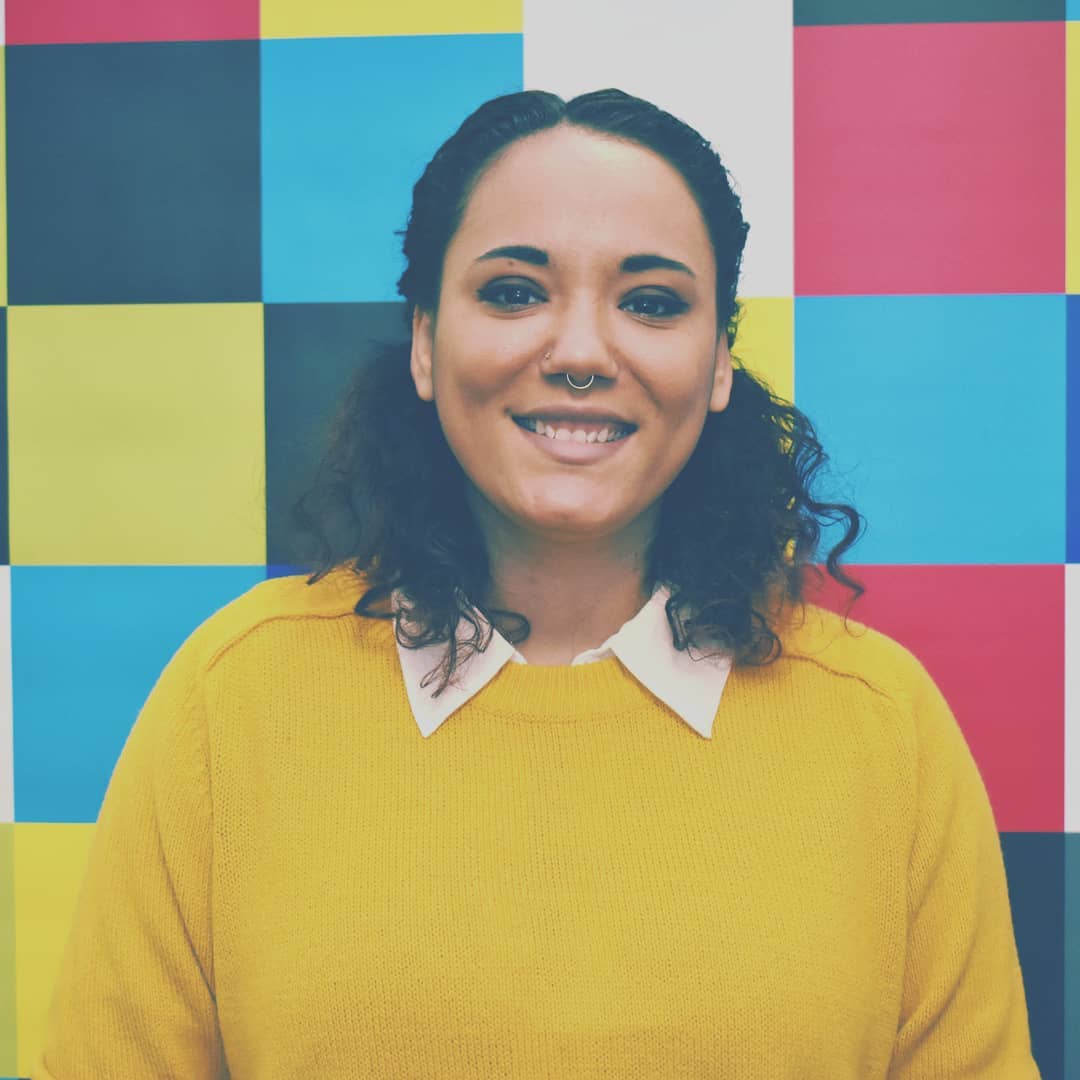PhillyCAM, a community media center and home of Philadelphia’s public access television station, has a mission to make community media and its creation accessible to residents in the city. Gabe Casto ‘14 works as the full-time programming and production coordinator for the center’s television department. In her role, she trains incoming PhillyCAM members in community media to prepare them to create their best work and helps guide their projects throughout their membership. Castro, who has had an interest in video production since childhood, received much of her training in media production at Klein College of Media and Communication.
Castro transferred from Jacksonville University in Jacksonville, Florida to Temple University after her freshman year. At Temple, she found that diversity was plentiful both in the classroom and in Philadelphia. The curriculum and location expanded her knowledge about content production by providing her with a new perspective on media that prioritizes the needs of community members.
“Coming to Philadelphia, it was pretty dramatic and allowed me to kind of see and create media I could see as being more impactful and global,” she says.
While taking classes at Klein, Castro worked with an instructor who, after she graduated, informed Castro of the opportunity to intern for PhillyCAM. PhillyCAM allows its members to start producing content after completing a required orientation and gives them the option to take additional classes to learn more about the production equipment. Castro began at the media center in 2015, where she served as an intern, and was later hired as a part-time access facilitator who trained incoming PhillyCAM members on how to use the equipment. She also used her position to experiment with her creativity.
“When she was first interning there she just stole my heart because immediately she delivered programming that she had produced,” says Debbie Rudman, the television programming director of PhillyCAM. She works with Castro in organizing submitted content to the television channel and coming up with programming ideas. Rudman could see that Castro not only enjoyed community media but excelled in bringing attention to it. Because of Castro’s clear interest in submitting content for the public access television network and her fondness for assisting members at all stages of their membership, Rudman supported her progression into a more hands-on role at the center as a programming and production coordinator in 2016.
Castro says that teaching classes and building bonds with members at PhillyCAM have been meaningful experiences. With PhillyCAM members coming from various backgrounds and experience levels, she found that she was learning from them just as they were learning from her. “I’ve always volunteered and worked on things that were more community-based or focusing on people and less of specifically entertainment. And so when I saw that this was an opportunity to create media and to help people create media...it just felt more important to me.”
“It is really nice to see her blossom. I mean it’s not like there weren’t signs of all this talent right from the beginning,” Rudman says. “But she’s really taken full throttle with all of the areas she’s been interested in and wanted to grow in and I really appreciate that PhillyCAM can be a place that can support that.”
While the PhillyCAM facility is not open at the moment due to the current COVID-19 pandemic, Castro encourages anyone interested in creating and sharing independent media to consider PhillyCAM as a resource they can utilize when the precautions are lifted. She believes that the center is a great place for community members to “keep their finger on the pulse” of the world around them.

